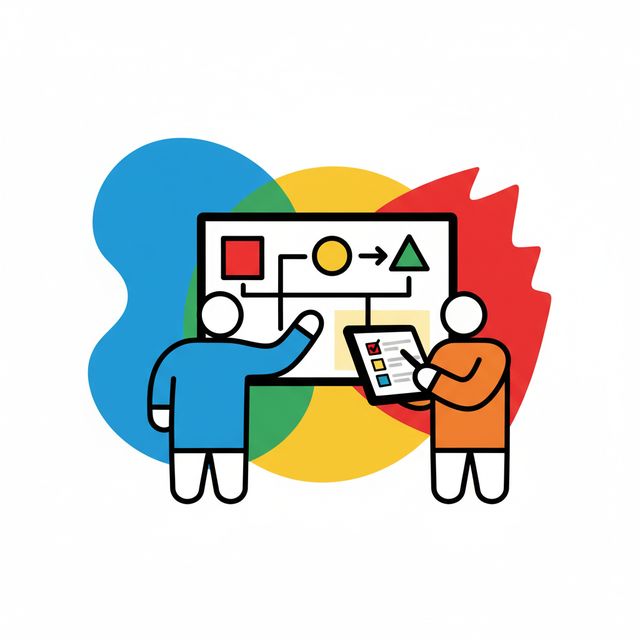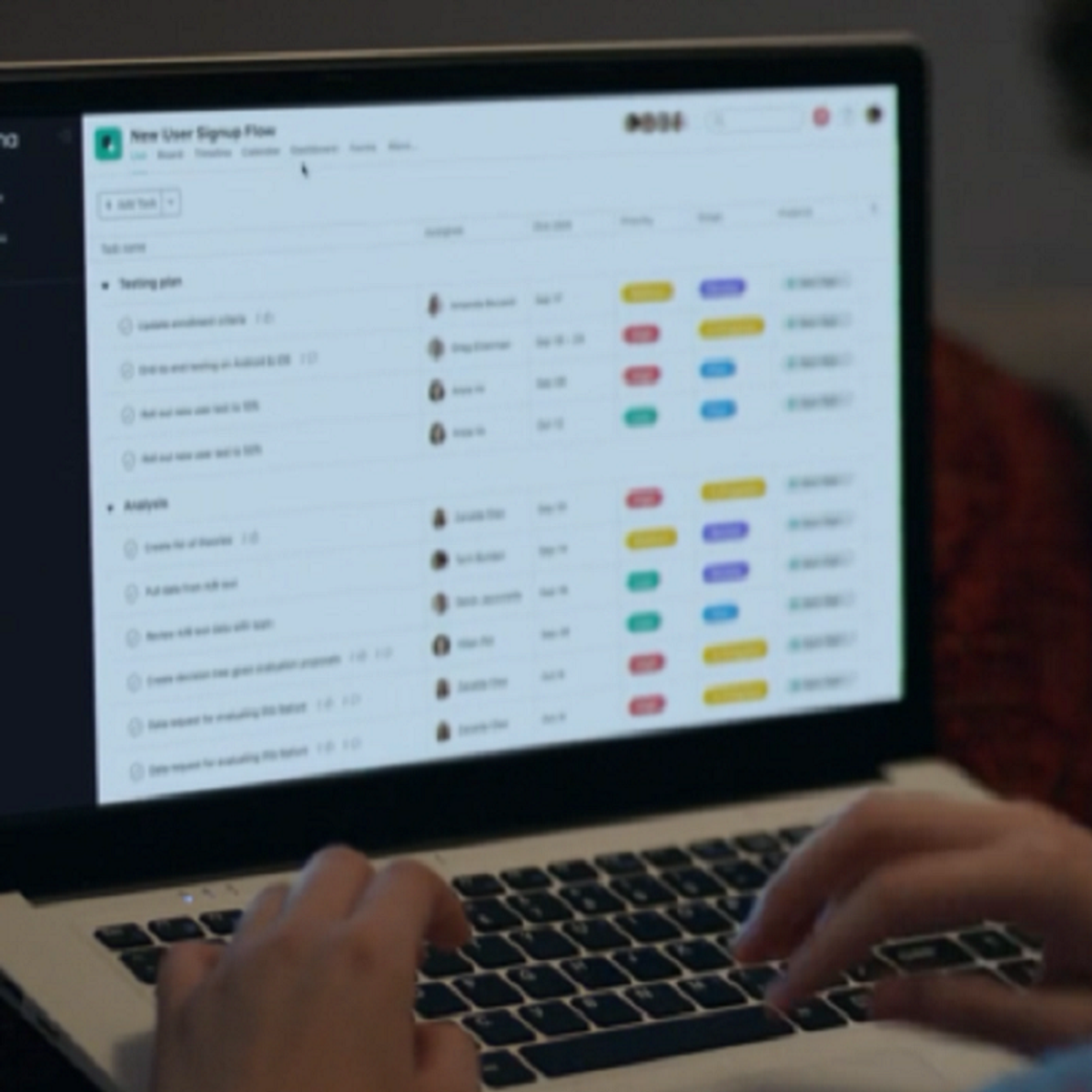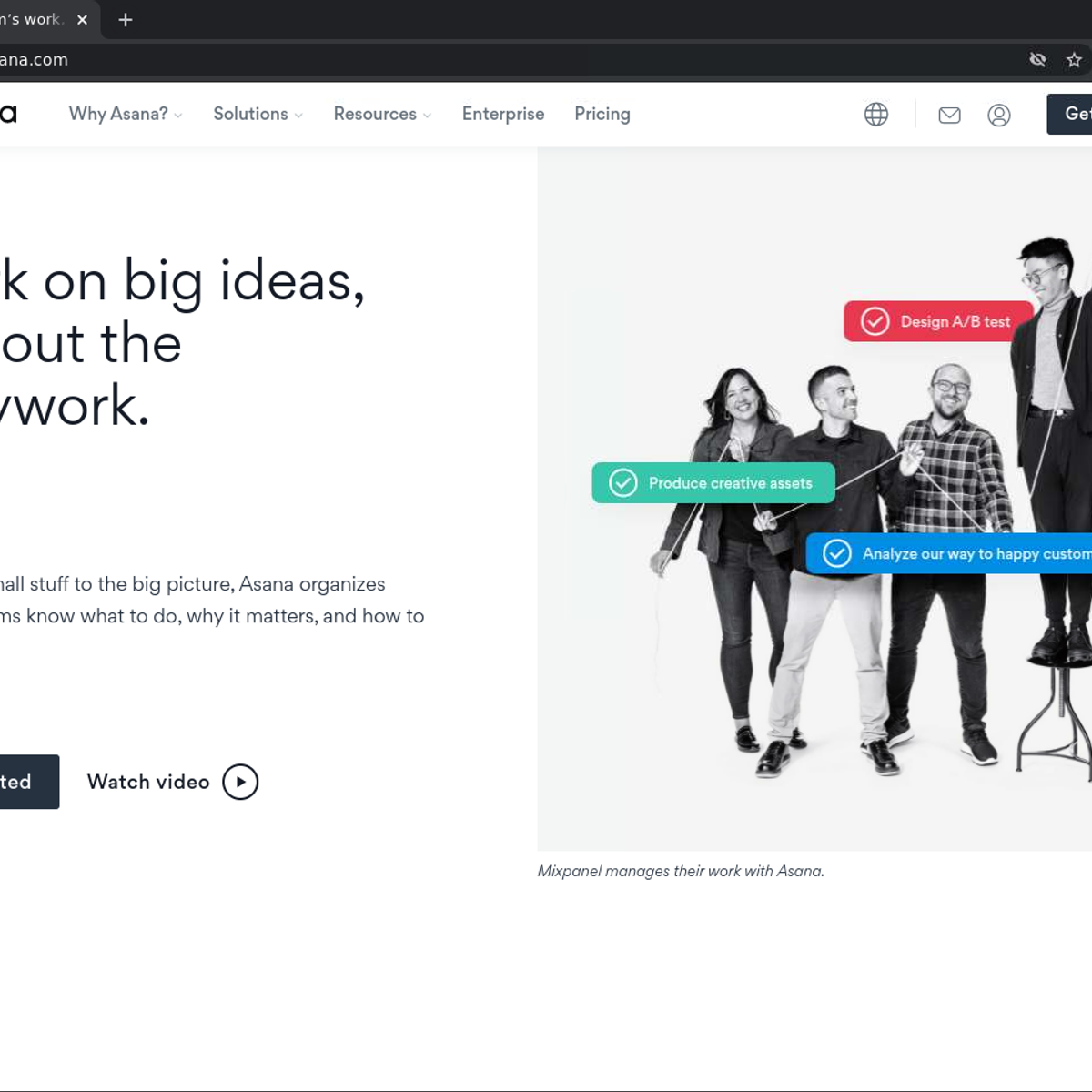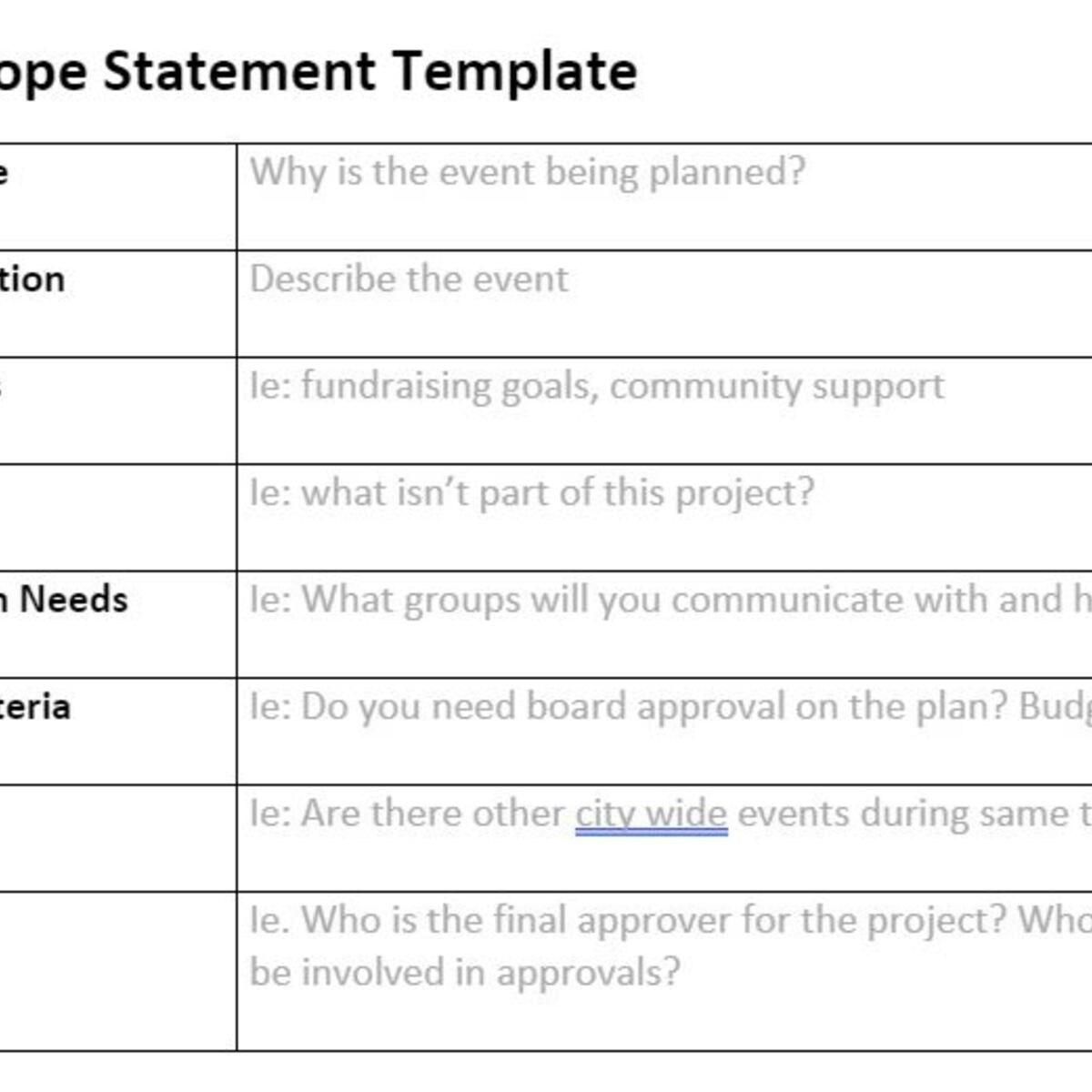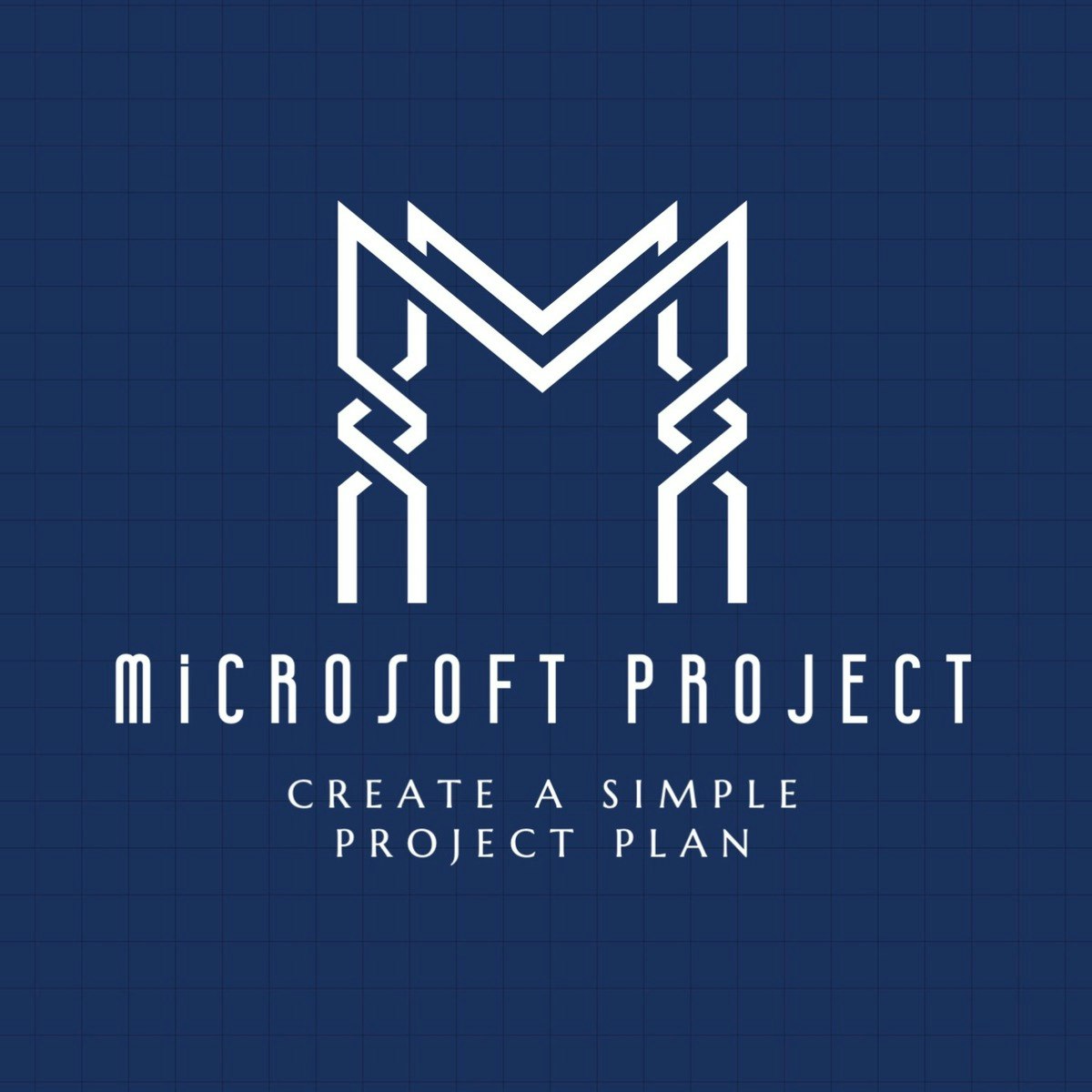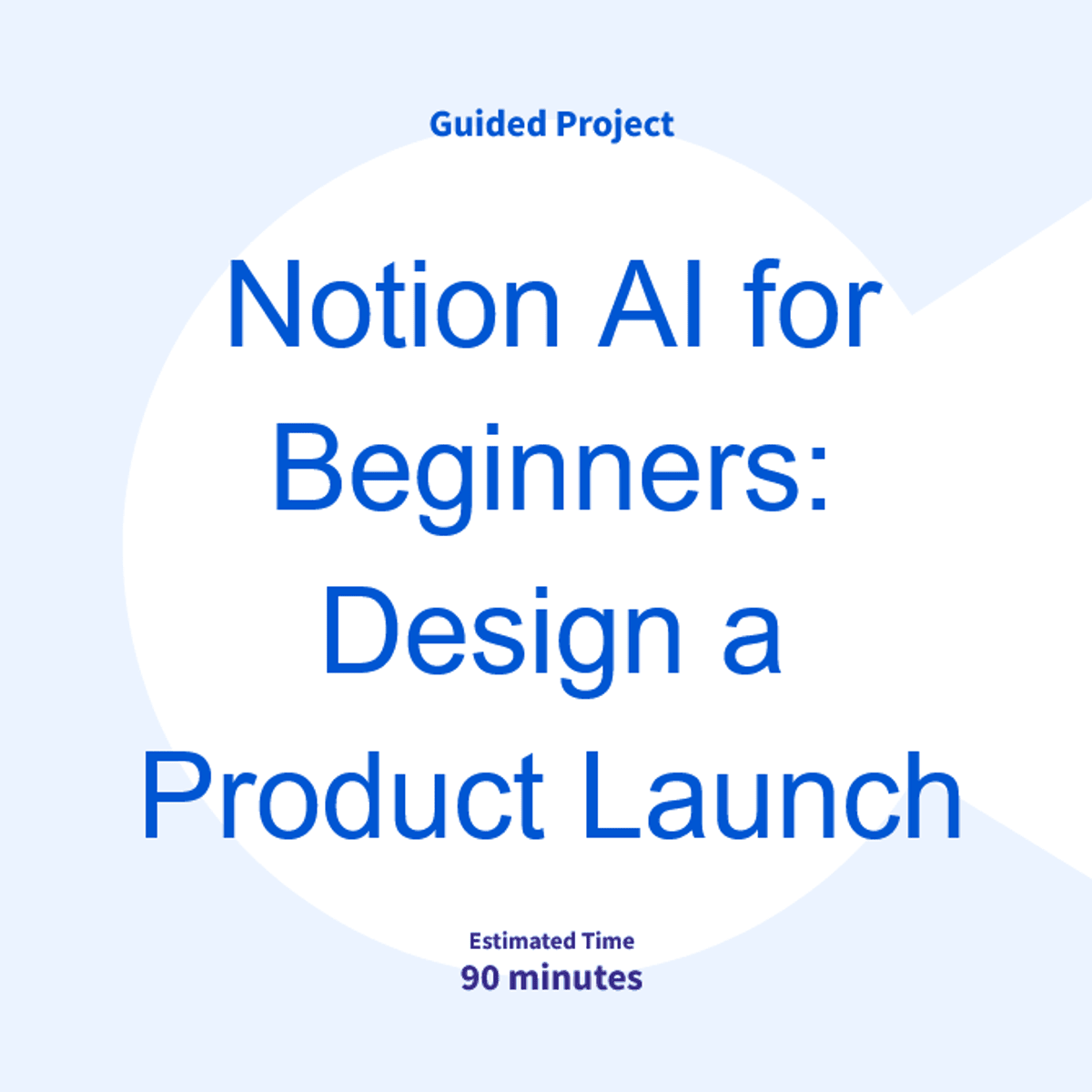Task Management
Comprehensive Guide to Task Management
Task management is the process of managing a task through its lifecycle—from planning and execution to tracking and reporting. It is a critical component of both personal productivity and organizational efficiency, involving the identification, prioritization, and completion of activities necessary to achieve specific goals. Whether you are a student juggling assignments, a professional managing daily responsibilities, or an organization coordinating complex projects, understanding and implementing effective task management strategies can significantly enhance outcomes. This discipline is not merely about creating to-do lists; it's a systematic approach to organizing work, optimizing resources, and ultimately, reducing stress while boosting productivity.
The appeal of task management lies in its ability to bring clarity and control to often chaotic workflows. By breaking down large objectives into smaller, manageable steps, individuals and teams can gain a clearer understanding of what needs to be done, by whom, and when. This structured approach not only facilitates smoother progress but also improves communication and collaboration, as everyone involved has a shared understanding of expectations and responsibilities. Furthermore, effective task management empowers individuals to focus their efforts, minimize wasted time, and meet deadlines more consistently, leading to a greater sense of accomplishment and reduced feelings of overwhelm.
Core Concepts and Principles
To fully grasp task management, it's important to understand its foundational elements. These concepts and principles provide the framework for various methodologies and tools designed to help individuals and teams manage their work more effectively.
Key Concepts: The Building Blocks of Task Management
At the heart of task management are several key concepts that define how work is structured and handled. A task is a specific, actionable item of work that needs to be completed. Tasks can vary in size and complexity, but they generally represent a single step towards a larger objective. Often, multiple related tasks are grouped into a project, which is a temporary endeavor undertaken to create a unique product, service, or result. Projects have defined start and end dates and specific goals.
Deadlines are the timeframes by which tasks or projects must be completed. They create a sense of urgency and help in planning and resource allocation. Priorities refer to the level of importance or urgency assigned to tasks. Effective prioritization ensures that critical activities receive attention first. Finally, dependencies exist when one task cannot start or finish until another task is completed. Recognizing dependencies is crucial for accurate scheduling and avoiding bottlenecks.
These concepts are interconnected. For instance, a project consists of multiple tasks, each with its own potential deadline and priority. The sequence in which these tasks are performed might be dictated by dependencies between them. Understanding these relationships is fundamental to successful task management.
Fundamental Principles: Guiding Effective Action
Several core principles underpin effective task management. One of the most crucial is decomposition, which involves breaking down large, complex tasks or projects into smaller, more manageable sub-tasks. This makes the work feel less daunting and allows for more accurate estimation and tracking. It also clarifies the path to completion.
Prioritization techniques are essential for deciding what to work on next. A common approach is the urgency/importance matrix (often called the Eisenhower Matrix), which categorizes tasks based on whether they are urgent, important, both, or neither, guiding decisions on whether to do, schedule, delegate, or delete a task. This helps to focus energy on activities that deliver the most value.
Another key principle is distinguishing between scheduling vs. doing. Scheduling involves planning when tasks will be done, while doing is the actual execution. Effective task management requires both, but it's important not to confuse planning with progress. Simply listing tasks isn't enough; a commitment to executing them according to a plan is necessary.
The Role of Estimation and Tracking
Estimation plays a significant role in task management. This involves predicting the amount of time and effort required to complete a task. Accurate estimation is challenging but vital for realistic planning and resource allocation. Underestimating can lead to missed deadlines and team burnout, while overestimating can result in inefficient use of resources.
Once work begins, tracking progress is essential. This involves monitoring the status of tasks, identifying any delays or roadblocks, and making necessary adjustments to the plan. Regular progress tracking provides visibility, allows for timely intervention if things go off course, and helps in managing stakeholder expectations. Task management software often includes features to streamline progress monitoring and reporting.
Introduction to Workflow Management
At a basic level, task management also introduces the concept of workflow management. A workflow is a sequence of steps or actions that are followed to complete a specific piece of work. Understanding and optimizing workflows can significantly improve efficiency and consistency. This involves looking at how tasks move from initiation to completion and identifying opportunities to streamline the process, remove bottlenecks, or automate repetitive steps. Many task management methodologies, such as Kanban, are explicitly designed around visualizing and managing workflows.
These core concepts and principles provide a universal language and a set of guiding ideas for anyone looking to improve how they manage their tasks, whether for personal goals or complex organizational projects.
For those interested in building a solid foundation in these core concepts through structured learning, online courses can be an excellent starting point. These courses often delve into the practical application of these principles.
Additionally, foundational knowledge in related areas can be beneficial.
Common Methodologies
Once the core concepts of task management are understood, individuals and teams can explore various established methodologies. These systems provide structured approaches to capturing, organizing, and completing tasks. Choosing the right methodology, or adapting elements from several, often depends on personal preferences, team dynamics, and the nature of the work.
Popular Individual Methods
Several task management methodologies are particularly well-suited for individual use, helping people organize their personal and professional lives with greater clarity and efficiency.
Getting Things Done (GTD), developed by David Allen, is a comprehensive system focused on capturing all tasks and ideas into an external, trusted system to free up mental space. The GTD workflow involves five steps: Capture (collecting anything that has your attention), Clarify (processing what each item is and if it's actionable), Organize (putting items where they belong), Reflect (reviewing your system regularly), and Engage (doing the tasks). A key principle is to decide the "next action" for every actionable item. If a task takes less than two minutes, Allen advises doing it immediately. GTD is praised for its ability to reduce cognitive load and provide a sense of control over a multitude of commitments.
Time Blocking is a technique where you schedule specific blocks of time in your calendar for dedicated work on particular tasks or types of tasks. Instead of working from a to-do list, you allocate fixed periods to focus on chosen activities. This method helps in prioritizing work, ensuring that important but non-urgent tasks get attention, and can protect against distractions by treating task work with the same commitment as scheduled appointments. It encourages a proactive approach to managing your day rather than a reactive one.
Eat the Frog, a concept popularized by Brian Tracy, is a simpler prioritization technique. The "frog" represents your most challenging or important task—the one you are most likely to procrastinate on. The principle is to tackle this "frog" first thing in the morning. By completing your most significant task early, you build momentum, achieve a sense of accomplishment, and ensure that even if the rest of the day gets derailed, you've already made substantial progress on what matters most.
Team-Oriented and Project Methods
When tasks involve collaboration and are part of larger projects, different methodologies often come into play, emphasizing visibility, flow, and iterative progress.
Kanban boards are a visual task management system that originated in lean manufacturing. Work items are represented by cards on a board, which is divided into columns representing different stages of a workflow (e.g., To Do, In Progress, Done). Teams move cards across the board as work progresses, providing a clear visual overview of who is doing what and where bottlenecks may be occurring. Key Kanban principles include visualizing workflow, limiting work in progress (WIP) to prevent overload, managing flow, making process policies explicit, implementing feedback loops, and improving collaboratively. Kanban is highly flexible and can be adapted to many different types of work.
Scrum is an agile framework often used for complex product development, particularly in software. While Scrum is a broader project management framework, its task management aspects involve breaking down project requirements (often user stories) into smaller tasks, which are then managed within fixed-length iterations called sprints. Daily stand-up meetings help coordinate activities and identify impediments. Scrum emphasizes iterative development, collaboration, and rapid adaptation to change.
Agile principles, more broadly, can be applied to task management even outside of formal Scrum or Kanban implementations. These principles value responding to change over following a rigid plan, delivering value incrementally, and fostering close collaboration between team members and stakeholders. Applying agile thinking to task management encourages flexibility, continuous improvement, and a focus on completing and delivering usable chunks of work regularly.
Comparing Methodologies and Simpler Techniques
Each methodology has its strengths and weaknesses and is suited to different contexts. GTD excels for individuals managing a high volume of diverse inputs. Time blocking is great for those who thrive on structure and want to ensure focused work periods. Eat the Frog is a straightforward approach for tackling procrastination on high-impact tasks.
For teams, Kanban offers excellent visual workflow management and flexibility. Scrum provides a more structured, time-boxed approach for iterative development. The choice often depends on factors like team size, project complexity, the need for predictability versus adaptability, and existing organizational culture. Many individuals and teams find success by combining elements from different methodologies to create a hybrid system that works best for them.
Beyond these comprehensive systems, simpler techniques remain widely used and effective. Basic To-Do Lists are the cornerstone of task management for many, offering a straightforward way to capture tasks. The Eisenhower Matrix, as mentioned earlier, is a powerful yet simple tool for prioritization, dividing tasks into four quadrants based on urgency and importance: Do, Schedule, Delegate, and Delete. Even these basic approaches, when applied consistently, can significantly improve organization and productivity. Another popular simple technique is the Pomodoro Technique, which involves working in focused 25-minute intervals separated by short breaks.
Online courses can help you explore these methodologies in more detail and learn how to apply them.
Tools and Technologies
The principles and methodologies of task management are brought to life through a wide array of tools and technologies. These range from simple pen-and-paper solutions to sophisticated software platforms, each designed to help individuals and teams capture, organize, track, and complete their work more effectively.
Categorizing Common Tools
Task management tools can be broadly categorized based on their primary function and complexity.
Digital To-Do List Apps are among the most popular tools. Applications like Todoist, Microsoft To Do, and Google Tasks allow users to create, organize, and prioritize lists of tasks. Many offer features like due dates, reminders, subtasks, and basic collaboration. These are often chosen for their simplicity and ease of use for individual task management or small-scale team coordination.
Calendar Applications, such as Google Calendar, Outlook Calendar, and Apple Calendar, are primarily designed for scheduling events and appointments. However, they are also frequently used for task management, especially when employing techniques like time blocking. By assigning specific time slots to tasks, users can visually plan their days and weeks. Many calendar apps now integrate task list features directly.
Project Management Software offers more comprehensive features for planning, executing, and monitoring projects. Tools like Asana, Trello, Monday.com, ClickUp, and Wrike provide capabilities for team collaboration, workflow visualization (e.g., Kanban boards, Gantt charts), resource allocation, progress tracking, and reporting. These platforms are typically used for managing team-based projects with multiple dependencies and stakeholders. OpenCourser offers a variety of courses on these specific platforms.
We believe these courses can help you master popular project management software:
Note-taking Apps with Task Features, such as Notion, Evernote, and Obsidian, blur the lines between note-taking and task management. These tools allow users to create rich documents, databases, and knowledge bases, while also incorporating to-do lists, reminders, and project tracking capabilities. They are favored by users who want a flexible, all-in-one workspace for managing both information and tasks.
Here are some courses that can help you learn how to use these versatile applications:
Finally, Physical Planners and Notebooks remain a viable and popular option for many. The tactile nature of writing tasks down can aid memory and focus. Systems like bullet journaling combine note-taking, task management, and scheduling in a customizable analog format. While lacking the automation and collaboration features of digital tools, physical methods offer simplicity and freedom from digital distractions.
Key Features to Look For
When evaluating task management tools, several key features are commonly sought after:
- Task Creation and Organization: The ability to easily add tasks, assign due dates, set priorities, and organize them into lists, projects, or categories.
- Reminders and Notifications: Alerts to keep users informed about upcoming deadlines or changes to tasks.
- Recurring Tasks: The option to set tasks that repeat at regular intervals (e.g., daily, weekly, monthly).
- Collaboration: Features that allow multiple users to work on tasks together, such as assigning tasks to team members, sharing files, and adding comments.
- Integrations: The ability to connect with other tools and applications, such as calendars, email clients, cloud storage services, and communication platforms.
- Reporting and Analytics: For team-based tools, features that provide insights into project progress, team workload, and overall productivity.
- Multiple Views: Options to visualize tasks in different ways, such as lists, Kanban boards, Gantt charts, or calendar views.
- Mobile Access: Availability of mobile apps to manage tasks on the go.
Selecting Tools Based on Needs
The best task management tool depends heavily on individual or team requirements. For personal task management, a simple to-do list app or a note-taking app with task features might suffice. Students might benefit from tools that integrate well with their academic calendars and note-taking habits. Freelancers may need tools that help track billable hours and manage multiple client projects.
For teams, the choice often depends on the team size, the complexity of the projects, and the desired workflow. Small teams with straightforward projects might find Kanban-style tools like Trello effective. Larger organizations or those managing complex projects with many dependencies might opt for more robust project management software like Asana, Monday.com, or Jira, which offer advanced features for planning, resource management, and reporting. It's important to consider the learning curve, cost, and scalability of any tool before adopting it. Often, a period of experimentation is necessary to find the best fit. Some organizations find that 44% of Project Managers are not even using the right Project Management Software for their needs, highlighting the importance of careful selection.
The Trend Towards Integrated Platforms and AI
A notable trend in the task management tool landscape is the move towards integrated platforms. Many tools aim to be an "all-in-one" solution, combining task management with communication, file sharing, document creation, and other productivity features. This reduces the need to switch between multiple applications and can streamline workflows. According to McKinsey, the new generation of social and collaboration tools are better at enabling employees to collaborate in improved and innovative ways, often integrating with other enterprise applications. They also note that such tools can improve internal communication, which respondents cited as a key benefit. Research from McKinsey also indicates that improved collaboration and communication through digital tools can increase productivity by up to 25%.
Another significant development is the incorporation of Artificial Intelligence (AI) into task management tools. AI-assisted features are beginning to automate aspects of task management, such as suggesting task priorities, scheduling tasks optimally, identifying potential roadblocks, and even drafting task descriptions or follow-up communications. Gartner predicts that by 2030, 80% of project management tasks, including scheduling and reporting, will be run by AI. While AI is not expected to replace human project managers entirely, it is poised to become a powerful assistant, handling routine administrative work and providing data-driven insights to enhance decision-making. This allows managers and team members to focus on more strategic and creative aspects of their work.
To learn more about specific software, consider these courses:
If you're interested in specific platforms and methodologies, these resources might be helpful:
Individual vs. Team Task Management
While the fundamental goal of task management—getting things done efficiently and effectively—remains the same, its application differs significantly between individual and team contexts. Understanding these differences is crucial for selecting appropriate strategies and tools, and for fostering productivity in both personal and collaborative settings.
Highlighting Differences in Scope and Complexity
Individual task management primarily focuses on personal productivity. The scope is typically limited to one person's responsibilities, whether they are personal chores, academic assignments, or work-related duties that don't require direct collaboration for completion. The complexity often arises from juggling multiple roles and responsibilities, managing personal deadlines, and maintaining motivation and focus. The individual has direct control over how tasks are prioritized, scheduled, and executed. Success is measured by personal output and goal achievement.
Team task management, on the other hand, involves coordinating the efforts of multiple individuals working towards a common project or organizational goal. The scope is broader, encompassing tasks that are often interdependent and require input or action from several team members. Complexity in team settings stems from managing dependencies, ensuring clear communication, aligning diverse skills and perspectives, and maintaining shared accountability. The success of team task management is measured by the team's collective output, the achievement of project milestones, and the overall efficiency of the collaborative process.
Challenges in Team Settings
Managing tasks within a team introduces a unique set of challenges that are less prevalent in individual task management.
Visibility is a primary concern. Team members need to see what others are working on, understand task statuses, and identify potential bottlenecks. Without a shared, transparent system, work can be duplicated, tasks can be overlooked, and progress can stall.
Delegation becomes a key activity. Assigning tasks to the right individuals based on their skills, availability, and workload requires careful consideration. Poor delegation can lead to overburdened team members, underutilized talent, or tasks being assigned to those lacking the necessary expertise. Effective delegation also involves clearly communicating expectations and granting appropriate authority.
Accountability can be diffused in a team setting if not managed properly. When multiple people are involved, it can sometimes be unclear who is ultimately responsible for ensuring a task is completed to the required standard and on time. Establishing clear ownership for each task is vital.
Communication overhead increases significantly in teams. Keeping everyone informed, coordinating handoffs, resolving issues, and making collective decisions require effective communication channels and practices. Miscommunication or lack of communication can lead to errors, delays, and frustration.
Techniques for Effective Team Task Management
To address the challenges of team task management, several techniques and practices have proven effective:
Shared Platforms: Utilizing collaborative task management software or project management tools is crucial. These platforms provide a centralized hub for tasks, deadlines, files, and communication, ensuring everyone has access to the same information in real-time. Visual tools like Kanban boards or Gantt charts within these platforms help enhance visibility.
Clear Assignment: Every task should have a single, clearly designated owner who is responsible for its completion. This avoids ambiguity and ensures accountability. The assignee should understand the task requirements, deadline, and its importance to the overall project.
Progress Tracking: Regularly monitoring and updating task statuses is essential. This can be done through the shared platform and supplemented by regular team check-ins. Tracking progress helps identify issues early and allows for timely adjustments.
Meeting Rhythms: Establishing regular team meetings, such as daily stand-ups (common in Agile methodologies) or weekly progress reviews, can facilitate communication, problem-solving, and coordination. These meetings should be focused and efficient, providing a forum for updates and addressing roadblocks.
The Role of Leadership and Team Culture
Effective team task management is not solely reliant on tools and techniques; leadership and team culture play a pivotal role. Leaders are responsible for setting clear goals and expectations, fostering an environment of trust and open communication, and empowering team members. They should champion the chosen task management processes and tools, ensuring consistent adoption.
A supportive team culture that values collaboration, mutual respect, and shared responsibility is also critical. When team members feel comfortable communicating challenges, offering help to one another, and taking collective ownership of project success, task management becomes much smoother and more effective. Encouraging acts of leadership at all levels, where team members proactively identify and solve problems, further enhances team performance.
Understanding how to manage tasks in a team setting is a valuable skill. These courses explore collaborative tools and project management principles:
For those looking to delve deeper into the broader field that encompasses team task management, project management is a key area to explore.
Benefits and Challenges
Adopting effective task management practices offers a multitude of benefits for both individuals and organizations. However, the path to proficient task management is not without its hurdles. Understanding both the advantages and the common pitfalls is key to successfully implementing and sustaining these practices.
Enumerating the Benefits
The positive impacts of good task management are wide-ranging and significant.
Increased Productivity: This is perhaps the most cited benefit. By organizing tasks, setting priorities, and minimizing wasted effort, individuals and teams can accomplish more in less time. Clear focus and reduced context-switching contribute to higher output.
Reduced Stress and Overwhelm: A structured approach to tasks helps prevent the feeling of being swamped. Knowing what needs to be done and having a plan to do it can significantly lower anxiety and improve mental well-being. Breaking down large tasks into smaller steps also makes them feel more manageable.
Improved Focus: Task management encourages concentrating on the task at hand. By capturing all to-dos in a system, the mind is freed from the burden of remembering everything, allowing for deeper concentration and higher quality work.
Better Time Management: At its core, task management is a form of time management. It involves allocating time effectively to different activities, ensuring that deadlines are met, and that time is spent on high-value tasks. Studies show that 82% of people don't have a formal time management system.
Meeting Deadlines Consistently: With clear due dates, progress tracking, and prioritization, the likelihood of meeting deadlines improves dramatically. This is crucial for maintaining commitments, whether personal, academic, or professional.
Enhanced Collaboration and Communication (for teams): Shared task management systems improve transparency and coordination within teams. Everyone knows their responsibilities and the status of others' work, leading to smoother handoffs and fewer misunderstandings.
Greater Visibility and Control: Task management provides a clear overview of all ongoing work, allowing for better decision-making, resource allocation, and proactive problem-solving.
Identifying Common Challenges
Despite the clear benefits, many individuals and teams struggle with implementing task management effectively. Some common challenges include:
Procrastination: The tendency to delay or postpone tasks, especially those that are difficult, unpleasant, or overwhelming, is a major hurdle. This can derail even the best-laid plans. Approximately 75% of students admit to procrastinating.
Difficulty Prioritizing: With numerous competing demands, it can be challenging to determine which tasks are truly important and deserve immediate attention. This can lead to spending time on low-value activities while neglecting critical ones.
Tool Overload or Fatigue: While task management tools are designed to help, having too many, or frequently switching between them, can become a source of confusion and inefficiency. Some employees find that an abundance of tools can make it harder to keep up.
Unrealistic Planning: Overly ambitious schedules or underestimating the time and effort required for tasks can lead to missed deadlines and frustration. Setting unattainable deadlines is a significant issue.
Scope Creep: In projects, scope creep occurs when the project's objectives expand beyond what was initially agreed upon, often leading to an increased workload and strained resources.
Poor Communication: In team settings, ineffective communication about task requirements, status updates, or roadblocks can lead to significant problems. Around 32% of professionals see communication as a major project management issue.
Lack of Accountability: If responsibilities are not clearly defined or if there's no system for tracking commitments, tasks can fall through the cracks.
Resistance to Change: Adopting new task management habits or tools can be met with resistance, as individuals may be comfortable with their existing (even if inefficient) methods.
Strategies for Overcoming Challenges
Overcoming these challenges often involves a combination of mindset shifts, disciplined habits, and the right tools or techniques.
- For Procrastination: Break tasks into smaller steps, use techniques like the Pomodoro method, set clear deadlines, and focus on the "next action" (GTD). Identifying the root cause of procrastination (e.g., fear of failure, lack of clarity) can also help.
- For Prioritization: Use frameworks like the Eisenhower Matrix, regularly review goals to ensure tasks align with them, and learn to say "no" to non-essential requests.
- For Tool Issues: Choose tools that genuinely fit your needs, stick with them consistently, and avoid the temptation to constantly try new ones unless there's a compelling reason.
- For Planning: Be realistic about time estimates, build in buffer time for unexpected issues, and regularly review and adjust plans as needed.
- For Communication (Teams): Establish clear communication protocols, use collaborative tools effectively, and encourage open and honest dialogue about progress and problems.
A crucial aspect is finding a balance between structure and flexibility. While systems and plans are important, it's also necessary to adapt to changing circumstances and unexpected events. Task management should be a supportive framework, not a rigid prison.
These books offer valuable insights into overcoming common task management challenges and developing productive habits:
Formal Education Pathways
While many individuals develop task management skills through experience and self-learning, formal education also plays a role in cultivating these competencies, particularly within programs geared towards management, organizational efficiency, and project execution. Understanding where task management principles are taught can be beneficial for students exploring related fields and for recruiters seeking candidates with strong organizational and planning abilities.
Integration into Curricula
Task management concepts are frequently integrated into various academic disciplines, often as a component of broader subject areas.
In Business Administration programs, task management is implicitly and explicitly covered within courses on organizational behavior, operations management, and general management. Students learn about efficiency, productivity, workflow optimization, and the importance of planning and execution in achieving business objectives. The ability to manage tasks effectively is seen as a core competency for future managers and leaders.
Project Management programs and courses, naturally, have task management as a central theme. Curricula delve deeply into breaking down projects into tasks, scheduling, resource allocation, risk management (as it pertains to task completion), and progress tracking. Methodologies like Agile, Scrum, and traditional waterfall approaches, all of which have distinct ways of managing tasks, are often taught in detail.
Industrial/Organizational Psychology programs may touch upon task management from the perspective of human performance, motivation, workload management, and job design. Understanding how individuals approach tasks, deal with cognitive load, and stay productive in a work environment are relevant areas of study.
Information Systems curricula often include aspects of task management, especially in the context of software development lifecycles, IT project management, and the use of collaborative tools and platforms. Students may learn about system design for workflow automation or the features of various project and task management software.
Relevant Skills Taught
Formal education in these areas helps develop a range of skills crucial for effective task management, even if "task management" itself isn't a standalone course title. These skills include:
- Planning: Defining objectives, breaking down work, and developing roadmaps.
- Scheduling: Sequencing tasks, setting deadlines, and managing timelines.
- Resource Allocation: Assigning personnel, budget, and materials to tasks effectively.
- Risk Management: Identifying potential problems that could impact task completion and developing mitigation strategies.
- Communication: Clearly conveying information, providing updates, and collaborating with others.
- Prioritization: Determining the importance and urgency of tasks to focus efforts appropriately.
- Problem-Solving: Addressing obstacles and finding solutions to keep tasks on track.
Research Areas in Academia
For those pursuing advanced degrees (e.g., PhD) or engaging in academic research, task management intersects with several fields of study. Researchers might explore topics such as:
- Cognitive Load Theory: How the human mind processes information and how task design can optimize mental effort and learning.
- Productivity Theories: Investigating factors that influence individual and team productivity, including motivation, work environment, and task characteristics.
- Tool Effectiveness Studies: Evaluating the impact of different task management software and methodologies on performance and user satisfaction.
- Organizational Behavior: How team dynamics, leadership styles, and organizational culture affect task coordination and project outcomes.
- Human-Computer Interaction (HCI): Designing more intuitive and effective digital tools for task and project management.
Presence in Professional Certifications
Task management skills are a significant component of many professional certifications. For example, the Project Management Professional (PMP) certification, offered by the Project Management Institute (PMI), extensively covers task definition, scheduling, execution, and monitoring as part of its domains of practice. Other certifications in areas like Agile (e.g., Certified ScrumMaster - CSM) also heavily emphasize effective task management within their respective frameworks. Achieving such certifications often requires demonstrating both theoretical knowledge and practical application of task management principles.
These academic and professional development pathways underscore the recognized importance of task management as a formal skill set, critical for success in a wide range of careers and organizational contexts.
For students and professionals looking to build a formal understanding, OpenCourser offers a range of courses that cover these skills, often within the context of broader disciplines like project management or business.
Learning Task Management Independently & Online
Beyond formal education, a wealth of resources is available for individuals wishing to learn or improve their task management skills independently. The accessibility of online courses, books, blogs, and workshops has made self-directed learning a viable and popular path for personal and professional development in this area. OpenCourser is a valuable platform for discovering such resources, allowing learners to easily browse through thousands of courses and books.
Feasibility of Self-Learning
Task management is a highly practical skill, and much of its mastery comes from application and refinement. This makes it particularly well-suited for self-learning. Individuals can readily find information on core principles, explore various methodologies, and experiment with different tools at their own pace.
Books remain a cornerstone for in-depth understanding. Seminal works like David Allen's "Getting Things Done" provide comprehensive frameworks that have helped millions. Many other authors offer insights into productivity, time management, and specific techniques.
Blogs and Online Articles offer a continuous stream of tips, reviews of new tools, and discussions on emerging trends in task management. These are often free and can provide quick, actionable advice. OpenCourser Notes, the official blog of OpenCourser, regularly features posts on online courses and productivity.
Workshops (both online and in-person) can provide focused, interactive learning experiences, often led by experts in the field. They can be a good way to kickstart learning or dive deeper into a specific methodology.
Online courses have emerged as a particularly powerful resource. Platforms like Coursera and Udemy, searchable through OpenCourser, offer a vast range of courses on task management, time management, productivity, and specific software tools. These courses often combine video lectures, readings, and practical exercises, allowing learners to develop skills systematically. OpenCourser's "Save to List" feature allows learners to easily shortlist courses they are interested in and return to them later via their managed list.
Common Pathways for Self-Learners
Individuals often follow a few common pathways when learning task management independently:
- Starting with Basic Principles: Many begin by learning fundamental concepts like prioritization (e.g., the Eisenhower Matrix), breaking down tasks, and consistent list-making.
- Experimenting with Tools and Methods: Learners then typically explore different tools (from simple apps to more complex software) and methodologies (like GTD or Kanban) to see what resonates with their personal style and needs. This phase involves trial and error.
- Seeking Specific Skill Development: As they identify particular needs or interests, learners might focus on developing specific skills, such as mastering a particular project management software (e.g., Asana, Trello, Notion), learning advanced prioritization techniques, or improving their ability to manage team tasks.
For those on a budget, OpenCourser provides a deals page with updated offers on online courses and books, helping learners save money.
These courses can help you start your journey or refine existing skills:
Using Online Learning to Supplement or Prepare for Formal Education
Online courses can be invaluable for students currently in formal education or those preparing to enter it. They can supplement textbook knowledge with practical skills and real-world examples. For instance, a business student might take an online course on Agile project management to gain skills that are highly valued in the workplace but perhaps only touched upon in their degree program. Similarly, someone preparing for a Master's program in project management could use introductory online courses to build a foundational understanding before commencing their formal studies.
The OpenCourser Learner's Guide offers articles on how to effectively use online courses as a student, including tips on creating a self-structured curriculum and earning certificates.
The Importance of Practical Application and Experimentation
Regardless of the learning resources used, the key to mastering task management independently is practical application and experimentation. Reading about a methodology or watching a tutorial on a tool is only the first step. True understanding and skill development come from consistently applying these concepts in daily life, reflecting on what works and what doesn't, and being willing to adjust and refine one's approach over time. Task management is not a one-size-fits-all discipline; the most effective systems are often those that are personalized through continuous practice and adaptation. The "Activities" section on OpenCourser course pages often suggests practical projects learners can do to supplement their online coursework and reinforce concepts.
Career Progression and Opportunities
Strong task management skills are highly valued across a wide spectrum of professions and are foundational to career growth in many areas. While some roles are explicitly centered around managing tasks and projects, the ability to organize work, prioritize effectively, and meet deadlines is an asset in nearly every job. For those considering a career pivot or just starting out, understanding how task management skills translate into job opportunities can be encouraging.
Roles Where Task Management is a Primary Skill
Certain professions demand exceptional task management capabilities as a core component of their responsibilities.
Project Manager: This role is, by definition, centered on managing tasks within the context of a project's lifecycle. Project Managers are responsible for planning, executing, monitoring, controlling, and closing projects, which involves meticulously managing countless individual and team tasks, deadlines, resources, and dependencies. The Project Management Institute (PMI) highlights that organizations with mature project management practices see significantly higher project success rates.
Program Manager: Program Managers oversee a collection of related projects (a program) to achieve strategic objectives. Their task management responsibilities are often at a higher level, coordinating across multiple project teams, managing interdependencies between projects, and ensuring the program as a whole stays on track.
Executive Assistant: High-level administrative professionals are masters of task management, juggling schedules, coordinating meetings, managing correspondence, and handling a wide variety of tasks for the executives they support. Their ability to prioritize and organize is critical to their success and the productivity of their principals.
Operations Manager: Operations Managers are responsible for the efficiency of an organization's day-to-day activities. This involves managing processes, resources, and workflows, all of which require strong task management skills to ensure smooth and productive operations.
Team Lead/Supervisor: Individuals in supervisory roles must effectively manage their own tasks as well as oversee and coordinate the tasks of their team members. This includes delegating work, tracking progress, and ensuring the team meets its objectives.
Value of Task Management Skills Across Professions
Beyond these specific roles, task management skills are universally beneficial. Researchers must manage complex experiments and publication deadlines. Entrepreneurs juggle all aspects of building a business, from product development to marketing and finance. Freelancers are essentially project managers for their own careers, managing multiple clients, projects, and deadlines simultaneously. Even in creative fields, artists and designers need to manage their projects and deliverables.
In essence, anyone whose work involves completing a series of steps to achieve a goal will benefit from strong task management abilities. The ability to demonstrate these skills can significantly enhance one's employability and performance in almost any industry. Many companies report that improved internal communication and collaboration, often facilitated by good task management practices and tools, are major benefits.
Early Career Opportunities
For individuals early in their careers or looking to enter fields where task management is key, there are several entry points:
- Internships in project coordination or project management offices (PMOs): These provide direct exposure to project environments and task management practices.
- Entry-level administrative roles: Positions like administrative assistant or office coordinator offer opportunities to develop organizational and task management skills.
- Volunteer coordination: Managing volunteers for non-profit organizations often involves significant task and project management.
- Junior roles in operations or logistics: These positions often require careful tracking and execution of tasks within established processes.
Taking initiative in any role to improve organization, streamline processes, or manage small projects effectively can also build a portfolio of task management experience.
Potential Career Paths and Increasing Importance with Seniority
A strong foundation in task management can open doors to various career paths. One might start as a project coordinator, advance to a Project Manager, then to a Senior Project Manager, Program Manager, or even into director-level roles overseeing portfolios of projects or entire departments. The skills are also transferable to roles in operations management, business analysis, consulting, and general management.
As individuals advance in their careers, the scope and complexity of the tasks and projects they manage typically increase. Senior leaders are often responsible for strategic initiatives that involve coordinating the efforts of many people and significant resources. The ability to effectively manage these large-scale endeavors, break them down into actionable components, and ensure their successful completion is paramount. Thus, task management skills become even more critical with increasing seniority.
Demonstrating Task Management Skills
When seeking career opportunities, it's important to effectively demonstrate your task management abilities. This can be done by:
- Highlighting relevant experience on your resume: Describe specific projects you've managed or contributed to, detailing your role in planning, organizing, and tracking tasks. Quantify your achievements whenever possible (e.g., "Completed project X 15% ahead of schedule").
- Discussing your approach in interviews: Be prepared to talk about the methodologies or tools you use for task management and provide examples of how you've handled challenging situations, prioritized competing demands, or led teams to complete tasks successfully.
- Showcasing personal projects: If you've managed significant personal projects (e.g., organizing a large event, developing a personal app), these can also serve as evidence of your task management skills.
- Referencing online course completions or certifications: Mentioning relevant online courses or certifications (e.g., in project management) can also underscore your commitment to developing these skills. OpenCourser's profile settings allow learners to showcase their education and even link to a personal website, which can be helpful for career explorers.
For those looking to explore careers where task management is central, OpenCourser features a "Career Center" on many course pages, listing relevant roles and providing more information about them.
These courses can help build foundational skills relevant to these career paths:
Exploring related careers can also provide context and potential alternative paths:
The Psychology of Effective Task Management
Beyond the methodologies and tools, effective task management is deeply intertwined with human psychology. Understanding the cognitive and motivational factors that influence how we approach, execute, and complete tasks can provide valuable insights for improving personal and team productivity. This section delves into the 'human element' of task management.
Exploring Cognitive Factors
Our cognitive abilities play a crucial role in how we manage tasks. Key factors include:
Attention Span: The ability to concentrate on a task for a sustained period is fundamental. In an age of constant digital distractions, maintaining focus can be a significant challenge. Strategies like minimizing interruptions, practicing mindfulness, and using techniques like the Pomodoro method (short bursts of focused work) aim to optimize attention. The average employee is interrupted about 60 times a day.
Working Memory Limitations: Working memory is the mental workspace where we temporarily hold and manipulate information. It has a limited capacity. Trying to juggle too many tasks or too much information simultaneously can overload working memory, leading to errors, reduced efficiency, and mental fatigue. Task management techniques like breaking down tasks into smaller chunks or externalizing information (e.g., writing things down, using GTD's "capture" principle) help manage cognitive load. Research shows that students taught to manage cognitive load perform better.
Decision Fatigue: Making numerous decisions throughout the day, including what to work on next or how to approach a task, can deplete mental energy. This "decision fatigue" can lead to poorer choices or avoidance of decision-making altogether. Establishing routines, using prioritization frameworks (like the Eisenhower Matrix), and pre-planning tasks can reduce the number of in-the-moment decisions required, conserving mental resources.
Discussing Motivational Aspects
Motivation is the driving force behind task completion. Understanding what motivates us can help in structuring work and maintaining momentum.
Goal Setting Theory: Clear, specific, and challenging (but achievable) goals are more motivating than vague or overly easy ones. Breaking down large goals into smaller, manageable tasks provides a sense of progress and accomplishment along the way, which fuels further motivation.
Intrinsic vs. Extrinsic Motivation: Intrinsic motivation comes from within—doing a task because it is inherently interesting, enjoyable, or aligned with one's values. Extrinsic motivation comes from external factors, such as rewards (e.g., money, praise) or punishments (e.g., negative consequences of not doing the task). While extrinsic motivators can be effective in the short term, intrinsic motivation tends to lead to more sustained engagement and higher quality work.
The Impact of Rewards and Recognition: Positive reinforcement, whether self-administered (e.g., taking a break after completing a challenging task) or provided by others (e.g., praise from a manager), can significantly boost motivation and reinforce desired behaviors. Recognizing progress and celebrating achievements, no matter how small, are important.
Analyzing Common Psychological Hurdles
Several common psychological patterns can hinder effective task management:
Procrastination: As mentioned earlier, procrastination is a frequent challenge. Psychologically, it's often not about laziness but rather about managing negative emotions associated with a task (e.g., boredom, frustration, anxiety, self-doubt). Strategies to combat procrastination include breaking tasks down, focusing on starting rather than finishing, and addressing the underlying emotional triggers.
Perfectionism: While striving for high standards is good, unhealthy perfectionism can lead to excessive time spent on minor details, fear of starting tasks due to fear of imperfection, and difficulty finishing tasks. Setting realistic standards, focusing on "good enough" for certain tasks, and recognizing the law of diminishing returns can help manage perfectionist tendencies.
Dealing with Interruptions: Constant interruptions, whether from colleagues, notifications, or internal thoughts, can severely disrupt focus and increase cognitive load. Developing strategies to minimize interruptions (e.g., dedicated focus times, turning off notifications) and quickly re-engage with tasks after an interruption is crucial.
'Flow State' and 'Deep Work'
Two concepts closely related to highly effective task completion are the 'flow state' and 'deep work'.
The flow state, a concept popularized by psychologist Mihaly Csikszentmihalyi, is a mental state of being fully immersed, focused, and energized in an activity. When in flow, individuals often experience a sense of effortless action, lose track of time, and perform at their peak. Creating conditions conducive to flow—such as having clear goals, receiving immediate feedback, and matching task challenge with skill level—can significantly enhance productivity and satisfaction.
Deep work, a term coined by Cal Newport, refers to the ability to focus without distraction on a cognitively demanding task. It's a state where you can produce high-quality work and increase your output. Cultivating the ability to engage in deep work requires minimizing shallow work (tasks that are non-cognitively demanding, often performed while distracted) and creating dedicated blocks of time for intense concentration.
Understanding these psychological dimensions allows individuals to not only choose the right task management methods and tools but also to cultivate the mental habits and environment conducive to sustained productivity and well-being.
Courses focusing on productivity and time management often touch upon these psychological aspects.
Further reading on human behavior and effectiveness can also be enlightening.
Future Trends
The field of task management is continuously evolving, driven by technological advancements and changing work paradigms. Staying aware of emerging trends can help individuals and organizations adapt their strategies and tools to maintain optimal productivity and well-being. Several key trends are shaping the future of how we manage tasks.
The Impact of Artificial Intelligence (AI)
Artificial Intelligence is arguably the most significant trend impacting task management. AI's capabilities are being integrated into task management tools in various ways:
- Automated Scheduling and Prioritization: AI algorithms can analyze task lists, dependencies, deadlines, and even individual work patterns to suggest optimal schedules and prioritize tasks intelligently. This can help users make better decisions about what to work on next and ensure that critical tasks are not overlooked.
- Predictive Task Management: By analyzing historical data and current project metrics, AI can help predict potential delays, resource conflicts, or tasks that are at risk of falling behind. This allows for proactive intervention and mitigation strategies.
- Intelligent Assistants and Chatbots: AI-powered assistants can help with tasks like creating new to-dos via voice command, summarizing progress reports, finding relevant information, or even drafting email responses related to specific tasks.
- Personalized Workflows: AI can learn individual work habits and preferences to offer personalized suggestions for improving productivity or managing workload more effectively.
Gartner predicts that by 2030, 80% of traditional project management tasks, including data collection, reporting, and scheduling, will be handled by AI. While AI is expected to automate many routine aspects of task management, the human element of strategic thinking, complex problem-solving, and interpersonal collaboration will remain crucial. According to some experts, project managers will need to embrace AI and lead the change in how projects are managed.
Courses on AI and its applications in business can provide valuable insights.
Integration Trends
The trend towards integrating task management functionalities within broader collaboration suites and communication platforms is accelerating. Instead of using standalone to-do list apps, many users now manage tasks within tools like Microsoft Teams, Slack, Google Workspace, or comprehensive project management platforms that combine chat, file sharing, video conferencing, and task tracking in one place. This integration aims to reduce context switching, improve workflow continuity, and ensure that tasks are managed where work discussions and collaborations are already happening. McKinsey & Company research highlights that such integrated social tools enhance internal communication and can lead to more project-based work. The global collaboration software market is projected to continue its significant growth.
Growing Focus on Well-being
There is an increasing recognition that productivity should not come at the expense of well-being. Future task management tools and practices are likely to place a greater emphasis on features that help prevent burnout and promote sustainable productivity. This includes:
- Workload Management Features: Tools that provide better visibility into individual and team workloads, helping to identify and prevent overallocation of tasks.
- Focus and Disconnection Tools: Features that encourage focused work sessions (e.g., Pomodoro timers, 'do not disturb' modes) and also prompt users to take regular breaks and disconnect from work.
- Work-Life Integration Support: Tools and practices that help individuals better manage the boundaries between work and personal life, especially in remote and hybrid work environments.
- Mood and Sentiment Tracking: Some advanced platforms are beginning to incorporate AI-driven sentiment analysis to gauge employee mood and identify potential stress factors, though this also raises privacy considerations.
The aim is to create task management systems that support not just efficiency, but also a healthy and sustainable approach to work. With 76% of employees experiencing burnout at least occasionally, this focus is critical.
Evolution of Remote and Hybrid Work Models
The widespread adoption of remote and hybrid work models continues to influence task management practices and tools. In distributed teams, clear task definition, transparent progress tracking, and effective asynchronous communication become even more critical. Task management tools are evolving to better support these needs, with enhanced features for remote collaboration, status updates, and virtual team coordination. The ability for teams to self-organize and for work to become more project-based is often supported by these technologies.
These trends suggest that the future of task management will be more intelligent, integrated, and human-centric, aiming to help individuals and teams not only get more done but also to work smarter and healthier.
Exploring topics like Artificial Intelligence and Cloud Computing can provide context for these technological shifts.
Frequently Asked Questions
This section addresses some common questions that individuals, especially students and those exploring careers related to task management, might have. The answers aim to provide practical, career-oriented insights.
What are the most critical task management skills employers look for?
Employers across various industries highly value several key task management skills. Firstly, prioritization is crucial – the ability to discern which tasks are most important and urgent and to focus efforts accordingly. Secondly, organization and planning skills are essential; this includes breaking down large projects into manageable tasks, setting realistic deadlines, and developing clear action plans. Thirdly, communication is key, especially in team environments, encompassing the ability to clearly articulate task requirements, provide updates, and collaborate effectively with colleagues.
Additionally, employers look for individuals who are proactive and take initiative in managing their workload and identifying potential issues. Problem-solving skills are also important for overcoming obstacles that can derail tasks. Finally, proficiency with relevant task management tools and software (e.g., project management platforms, calendar apps) is often a desired, if not required, skill, especially for roles that heavily involve project coordination or teamwork.
Can I get a job based on task management skills alone?
While task management skills are highly valuable and often a prerequisite for many roles, it's rare to find a job description that lists *only* task management as the sole requirement, unless it's a very specialized entry-level coordination role. More commonly, task management skills are a critical component of a broader skill set required for a particular job. For example, a Project Manager needs excellent task management skills, but also leadership, communication, risk management, and budgeting abilities.
Think of task management as a foundational skill that enhances your ability to perform in many different careers. While it might not be the only skill that gets you a job, a demonstrable inability to manage tasks effectively can certainly be a barrier to employment or advancement in numerous fields. Strong task management abilities will make you a more effective and reliable employee, regardless of your specific role.
How do I demonstrate task management skills in a resume or interview?
Demonstrating task management skills requires providing concrete examples of how you've applied them. On your resume, use action verbs and quantify your achievements whenever possible. Instead of saying "Managed tasks," you could say, "Successfully managed a 3-month project with 150+ tasks, delivering it on time and 10% under budget by implementing a detailed work breakdown structure and weekly progress tracking." Highlight experience with specific methodologies (e.g., Agile, GTD) or tools (e.g., Asana, Jira, Trello) if relevant to the job you're applying for.
In an interview, be prepared to discuss specific situations where you had to manage multiple tasks or a complex project. Use the STAR method (Situation, Task, Action, Result) to structure your answers. For example:
- Situation: Describe a scenario where you faced a challenging task or multiple competing priorities.
- Task: Explain what your responsibilities were or what needed to be accomplished.
- Action: Detail the steps you took to manage the tasks – how you prioritized, planned, organized, and tracked progress. Mention any specific techniques or tools you used.
- Result: Share the outcome of your actions. Did you meet the deadline? Was the project successful? What did you learn?
Are task management certifications worth it?
The value of a task management certification depends on your career goals and the industry you're in or targeting. For roles explicitly in project or program management, certifications like the Project Management Professional (PMP) or Certified ScrumMaster (CSM) can be highly beneficial and are often preferred or even required by employers. These certifications validate a certain level of knowledge and competence in formal project and task management methodologies.
For roles where task management is a supporting rather than a primary skill, a formal certification might be less critical. However, completing courses (even non-certification ones) in task management, time management, or specific software tools can still be a valuable addition to your resume and can help you develop practical skills. These can demonstrate your commitment to personal development and efficiency.
Ultimately, while certifications can open doors or provide a competitive edge in certain fields, the ability to effectively apply task management principles in real-world situations is what truly matters to most employers.
What's the difference between task management and project management?
Task management and project management are related but distinct concepts. Task management focuses on the lifecycle of individual tasks or a series of tasks – planning, organizing, executing, and tracking them to completion. It can be applied to personal to-do lists, daily work activities, or components of a larger project. The emphasis is on the 'doing' of specific work items.
Project management is a broader discipline that involves overseeing the entire lifecycle of a project, from initiation and planning through execution, monitoring, controlling, and closure, to achieve specific goals and meet specific success criteria within a defined timeframe and budget. Project management encompasses task management, but also includes other areas like scope management, cost management, quality management, resource management, risk management, stakeholder management, and communication management. In essence, task management is a crucial subset of activities within the larger framework of project management.
How can I improve my task management skills quickly?
Improving task management skills quickly involves a combination of learning and immediate application:
- Start Simple: Begin by consistently using a basic to-do list. Write everything down. This alone can significantly reduce mental clutter.
- Prioritize Ruthlessly: Each day, identify the 1-3 most important tasks that will make the biggest impact and focus on those first (like the "Eat the Frog" method). Use a simple urgency/importance matrix if needed.
- Break It Down: For any task that feels overwhelming, break it into smaller, more actionable steps.
- Time Blocking: Allocate specific blocks of time in your calendar for important tasks and treat those appointments seriously.
- Minimize Distractions: When working on a task, turn off notifications and create a focused environment.
- Review and Reflect: At the end of each day or week, briefly review what you accomplished, what didn't get done, and why. Adjust your approach for the next period.
- Learn One New Technique or Tool: Pick one well-regarded methodology (like basic GTD principles) or a simple tool and commit to using it for a few weeks. Many online courses offer quick introductions.
Consistency is key. Small, consistent changes often lead to rapid improvements in how effectively you manage your tasks.
These courses offer practical strategies for quick improvement:
Is task management software necessary to be effective?
No, task management software is not strictly necessary to be effective at task management, but it can be extremely helpful, especially for managing complexity or collaborating with a team. Many highly organized and productive individuals manage their tasks effectively using simple pen-and-paper systems, notebooks, or whiteboards. The principles of task management (capturing, prioritizing, planning, doing, reviewing) are more important than the specific tool used.
However, software offers several advantages:
- Automation: Reminders, recurring tasks, and notifications.
- Collaboration: Easy sharing, delegation, and status tracking for teams.
- Accessibility: Access your tasks from multiple devices, anywhere.
- Integration: Connections with calendars, email, and other tools.
- Visualization: Different views like Kanban boards or Gantt charts can provide valuable insights.
Conclusion
Task management, at its core, is a discipline dedicated to bringing order and efficiency to the myriad of activities that fill our personal and professional lives. It's about more than just ticking off items on a list; it's a strategic approach to identifying what needs to be done, deciding the best way to do it, and ensuring it gets completed effectively. From understanding fundamental concepts like tasks, projects, and priorities, to applying established methodologies such as GTD or Kanban, and leveraging the ever-evolving landscape of digital tools, the journey to mastering task management is one of continuous learning and adaptation.
The benefits are compelling: increased productivity, reduced stress, better focus, and a greater sense of control over one's time and commitments. However, challenges like procrastination, difficulty prioritizing, and tool fatigue are real and require conscious effort and strategy to overcome. For those considering careers where these skills are paramount, such as in Project Management or operations, developing strong task management abilities is not just an advantage but often a necessity. Even for individuals in other fields, or students navigating their academic journey, these skills are universally applicable and contribute significantly to success and well-being.
Whether you choose to learn through formal education, online courses, books, or practical experimentation, the path to effective task management is accessible. Platforms like OpenCourser provide a wealth of resources to support this journey, from foundational courses to deep dives into specific tools and techniques. Remember that the most effective task management system is often the one that is personalized to your needs and consistently applied. As the nature of work continues to evolve, particularly with the rise of AI and remote collaboration, the ability to manage tasks with clarity, purpose, and adaptability will only become more critical. Embarking on the path to better task management is an investment in your future productivity, effectiveness, and overall peace of mind.
Useful Links and Resources
To further your exploration of task management and find resources to aid your learning journey, here are some helpful links:
- OpenCourser Home: https://opencourser.com - Start your search for courses and books on task management and related topics.
- OpenCourser Notes (Blog): https://opencourser.com/notes - Find articles and insights on online learning, productivity, and educational resources.
- OpenCourser Learner's Guide: https://opencourser.com/learners-guide - Access guides on how to make the most of online courses, create learning plans, and more.
- OpenCourser Deals: https://opencourser.com/deals/ - Discover discounts and offers on online courses and educational materials.
- Browse Productivity Courses on OpenCourser: https://opencourser.com/browse/productivity - Explore a curated category of courses focused on enhancing productivity.
- Browse Project Management Courses on OpenCourser: https://opencourser.com/browse/project-management - Find courses specifically related to project management, a field where task management is a core skill.
- Project Management Institute (PMI): https://www.pmi.org - A leading global association for project management professionals, offering certifications, research, and resources.
- Harvard Business Review - Time Management: https://hbr.org/topic/time-management - Articles and insights on time management and productivity from a reputable source.

